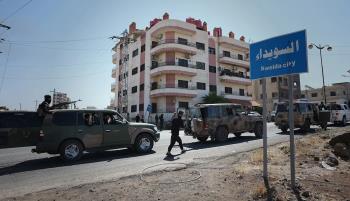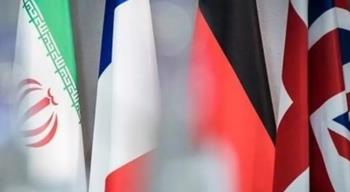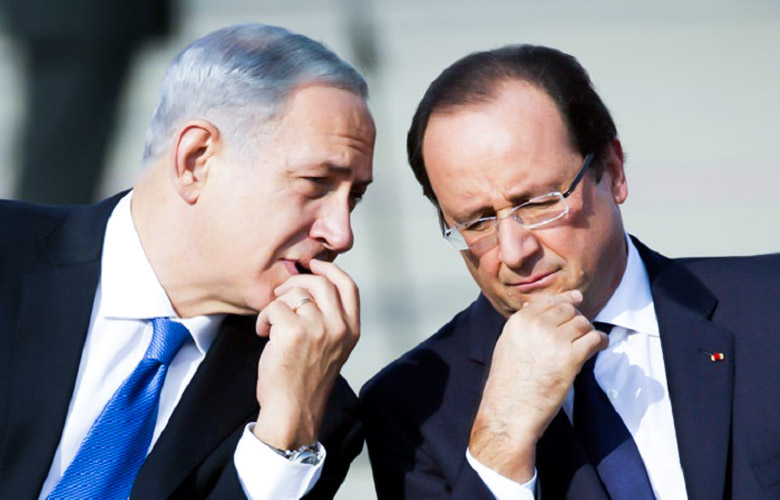Alwaght- Taking cue from Syria’s Geneva peace negotiations, France unveiled its proposal for a peace deal between the Palestinian Authority and the Israeli regime on January 31, 2016, promising to work on holding an international conference to push resumption of the peace dialogue between the two sides. The French initiative faced an Israeli opposition and a Palestinian Authority’s welcome while some Palestinian factions found it a waste of time. The French Foreign Minister Laurent Fabius has reiterated Paris initiative for the Palestinian-Israeli peace. What is the major objective behind the French insistence on resumption of the Israeli-Palestinian negotiations?
Let’s get back in history to the First Intifada of the Palestinians- or also the stone intifada- in 1987 during which the Palestinian politicians spoiled the bloods of their protestors and also missed an opportunity to form a united Palestinian state from north to south after they went to the negotiating table with Tel Aviv in 1993 Oslo peace talks. Also, let’s move back again in history to the Second Intifada in 2000 which restored hope and morale to the Palestinians to realize a seriously long-held dream. However, very soon, their hopes were destroyed after the Palestinian Authority started dialogue with the Israeli regime in Egypt’s Sharm el-Sheikh with a presence of Palestine’s President Mahmoud Abbas and then-Israeli Prime Minister Ariel Sharon.
It appears that the history is repeating itself now as the Palestinian Authority announces agreement with the French initiative for resumption of the talks while even its proposers are not believing in it and its feasibility. With this agreement, some believe, the Palestinian Authority has declared death of the Third Intifada.
Concerning the theme of the new French initiative, some others suggest that it is similar to the Arab initiative of 2002, however, there is a big difference between them. Surprisingly, the French proposal calls for formation of a demilitarized Palestinian state within the pre-1967 Six Day War borders, taking into account the Israeli security requirements, and seeing exchange of territories between the Israeli and Palestinian sides. The Palestinian refugees, according to Paris initiative, would be compensated, with no right to return home. Should the negotiations fail, the Palestinian Authority would be granted a reward: French recognition of a Palestinian state while it does not exist on the ground at all. With this, however, the Palestinian leadership has welcomed, appreciated and even thanked Paris for the care.
It was not just the Palestinian Authority that has welcomed the French move, as also such Arab countries as Saudi Arabia has taken the same positive stance as Anwar Eshki, the retired Saudi army general, has said that Riyadh would open embassy in Tel Aviv should the Israeli regime accepted the Arab peace initiative of 2002 with a French procedure.
A report published by the Israeli daily Jerusalem Post has made it clear that General Anwar Eshki during his interview with Qatar’s Aljazeera news network was asked about the time Saudi Arabia would open its embassy in the Israeli regime. “You must ask the (Israeli Prime Minister Benjamin) Netanyahu,” replied Eshki. The Jordanian king and the (Persian) Gulf Arab States that welcomed the initiative did the same job under the excuse of efforts to end the Israeli-Palestinian conflict.
The resistant factions
On the other side, the anti-compromise resistant Palestinian factions have maintained that the French initiative was a new attempt to waste time and “testing what was already tested,” referring to 25 years of negotiations between the Palestinian Authority and the Israeli occupation during which the Palestinian leadership has failed to make any real successes on the ground.
Yahiya Musa, the Palestinian member of the parliament from Hamas movement has said that the French and other proposed ideas calling for return to negotiations came as part of persistent efforts to contain the Al-Quds intifada sparked since over four months ago. Musa added that the Palestinian Authority’s moving within the course of negotiations, while the Israeli regime stepped up its crimes against the Palestinian people, was a part of coordination with Tel Aviv to break off the intifada.
“The dark prospects of a political solution and failure of the efforts of the Palestinian Authority in negotiations during past years are the major drives sparking the Al-Quds incidents,” continued Yahiya Musa.
Furthermore, Davoud Shahab, the Islamic Jihad Movement’s press secretary, has asserted that the French initiative was a new scenario aiming at wasting time further, adding that “the proposed items are already tested and failed, and they have not brought our nation and our cause any outcome.” Shahab also argued that the talk about international sympathy with the Palestinians was never brought into realization especially by the Western governments and countries on which Abu Mazen- also name of Mahmoud Abbas- is hanging while they are of no use. “The only choice to liberate the Palestinians is to resist the Israeli occupation and to support the intifada,” continued Davoud Shahab.
The member of leadership of the Popular Front for Liberation of Palestine Zulfiqar Serjio has said that the French proposal was an involution of the Palestinian demand for fully qualified international conference working on taking the Palestinian rights (from Tel Aviv) and implementing the international resolutions that call for end of occupation and not negotiating at the expense of the Palestinian people’s legal rights. Serjio argued that the French initiative was a foiling of the achievements of the Palestinian intifada and the Palestinians who succeeded in disclosing the Israeli policies to the world and to the European states. The Third Al-Quds Intifada has inflicted heavy losses on the Israeli regime, as the world boycotted Tel Aviv economically and academically, according to Serjio.
The French attempts and objectives as well as the Arab countries’ concession on the Palestinian cause have become clear now. What they want is to contain the Third Intifada to grant Tel Aviv ease and comfort. Would the French make it through their initiative? Or the Palestinian fields have the last say?



























